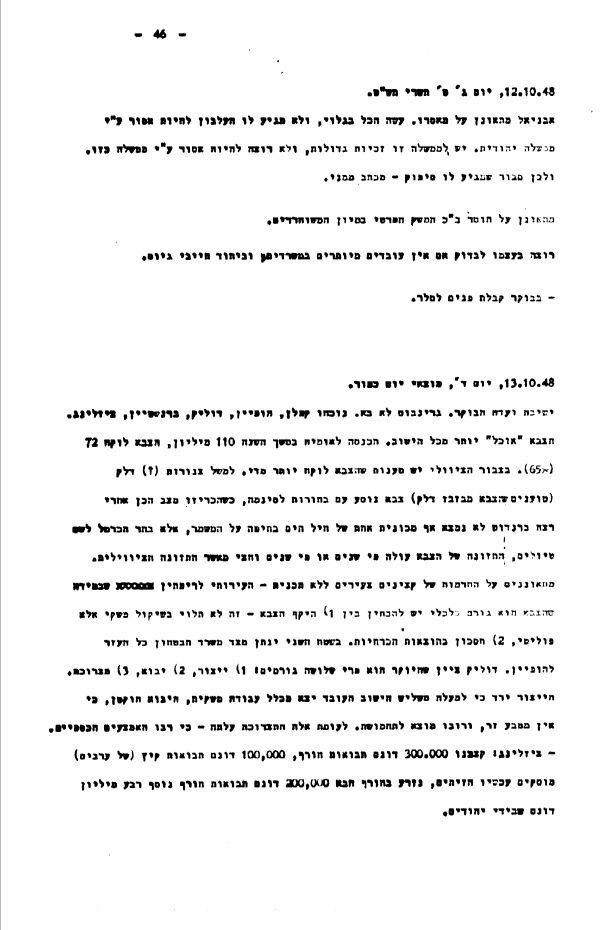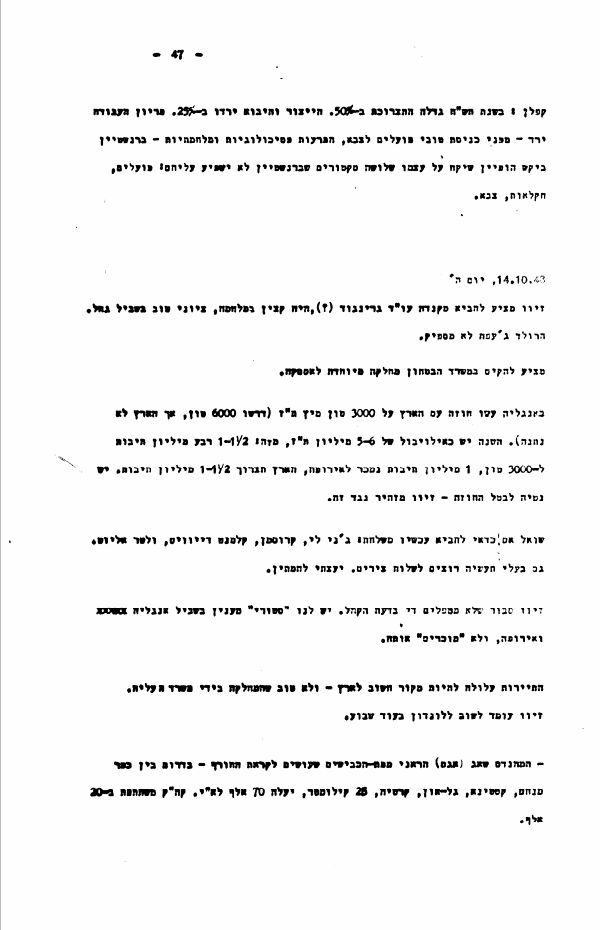Wednesday, October 13, 1948, end of Yom Kippur
A meeting of the cost-of-living committee. [Yitzhak] Gruenbaum didn't attend. Present were [Eliezer] Kaplan, [Eliezer] Hoofien, Dolik [Horowitz], [Peretz] Bernstein, [Aharon] Zisling. The army "eats" more than the entire Yishuv. National income over the year was 110 million, the army takes 72 (65%). Among the civilian public there are complaints that the army takes too much. For example pipes (?), fuel (they claim that the army wastes fuel), army [personnel] drive to the cinema with girls. When a state of alert was declared after Bernadotte's assassination, not a single vehicle of the navy could be found in Haifa on patrol, but rather on Mount Carmel for treks. The army's nourishment costs twice or 2 ½ times as much as civilian nourishment. There are complaints about confiscations by young officers without a plan.
I told Hoofien that to the extent that the army is an economic actor, it's necessary to distinguish between 1) the scale of the army - this depends not on economic considerations but on political ones, [and] 2) frugality with regard to necessary expenses. In the second area Hoofien will receive all the help needed from the Ministry of Defense. Dolik noted that cost-of-living is a product of three factors: 1) production, 2) import, 3) consumption. Production has decreased, because more than a third of the working Yishuv has exited the employment economy. Import has decreased, because there's no foreign currency, and most of it is spent on ammunition. In contrast to these, consumption has risen - because financial means have increased [among the public].
Zisling: we harvested 300,000 dunams of winter crops, 100,000 dunams of (Arabs') summer crops, the olives are being harvested now. Next winter we'll sow 200,000 dunams of winter crops, in addition to a quarter million dunams in the hands of Jews.
Kaplan: In the [Jewish] year 5,708 [1947-1948] consumption rose by 50%. Production and import decreased by 25%. Work productivity decreased - because of the enlistment of the best workers in the army, [and] psychological and war-related disruptions.
Bernstein asked Hoofien to take upon himself three sectors over which Bernstein will have no influence: workers, agriculture, army.










